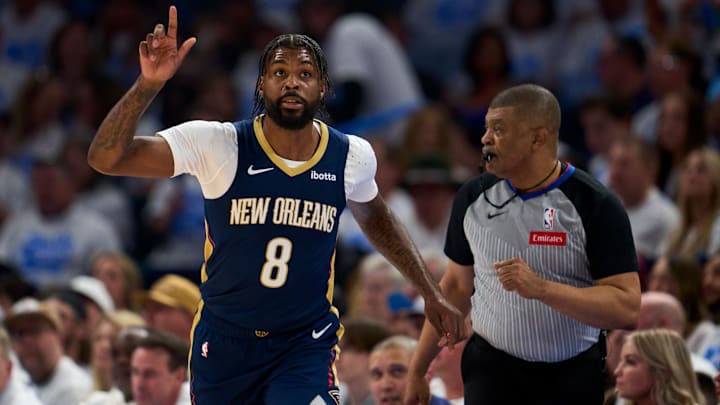Despite bold rumors at the start of free agency, the Cleveland Cavaliers had a tame and quiet offseason with a new coaching staff to teach the young core.
Still, the Cavs have plenty of unanswered questions that have already created problems in the past two years. Outside shooting and inconsistent bench production have plagued the Cavaliers, and a weak frontcourt rotation has fallen too far on the team's priority list in favor of a revolving door of aged veterans.
While continuity and new leadership could give Cleveland an opportunity to find unexpected production out of their secondary contributors, the Cavaliers undoubtedly fell short this summer of upgrading the supporting cast and bench. The Cavaliers' financial restrictions halted most options in free agency, but their efforts to navigate the luxury tax threshold fell short after Isaac Okoro's new contract.
With Cleveland's main objective failed, a retrospective look shows that the Cavs' lineup could be much improved if they had been aggressive and in free agency rather than prioritizing internal extensions. The Cavaliers did succeed in securing a long-term future with a talented young core while maintaining trade flexibility; however, as other Eastern Conference contenders upgraded this year, the Cavs have lost a significant foothold in the East as a serious competitor.
Over the past four years, the Cavaliers have consistently improved year-by-year, recently winning a first-round playoff series for the first time since 2018. But, their continued injury concerns have showcased the Cavs' lacking bench production. This summer, improving the secondary unit should have been the top priority outside of a coach and Donovan Mitchell's extension.
If the Cavaliers had managed to secure leading role player targets this summer, these three players could have been integral pieces to the Cavs' success this next season.
Naji Marshall was the perfect wing candidate for the Cavaliers
Calling a role player a "perfect" option for any franchise is a hefty claim, but Naji Marshall's size and skillset presented a dream opportunity for the Cavaliers to answer their various needs on the wing.
At 6-foot-7, Marshall improves Cleveland's size on the wing. His defensive efforts last season with the New Orleans Pelicans earned him a fair share of praise, and his offensive production as a 38.7 percent three-point shooter set him apart as a true 3-and-D modern wing. Marshall provided an efficient season without requiring heavy usage, and at 26 years old, he projects only to improve in the coming years.
Bringing Marshall off the bench behind Max Strus and alongside Isaac Okoro would have established an elite wing presence in the second unit. Instead, the Cavaliers were never linked to Marshall outside of wishful rumors. Marshall eventually signed with the Dallas Mavericks on a three-year, $27 million contract. Marshall's price tag may have taken the Cavaliers out of the race, admittedly, without making a prior move to dump salary.
Given the financial pit the Cavs are now in, though, the team may find themselves searching for a cash dump trade anyway. The Cavaliers also missed on other veteran wings including Royce O'Neale, Saddiq Bey and Kelly Oubre, Jr.. By the end of free agency, many talented wings were signing for deals below their expected value, making Cleveland's complacency confusing at best and unacceptable at worst.
